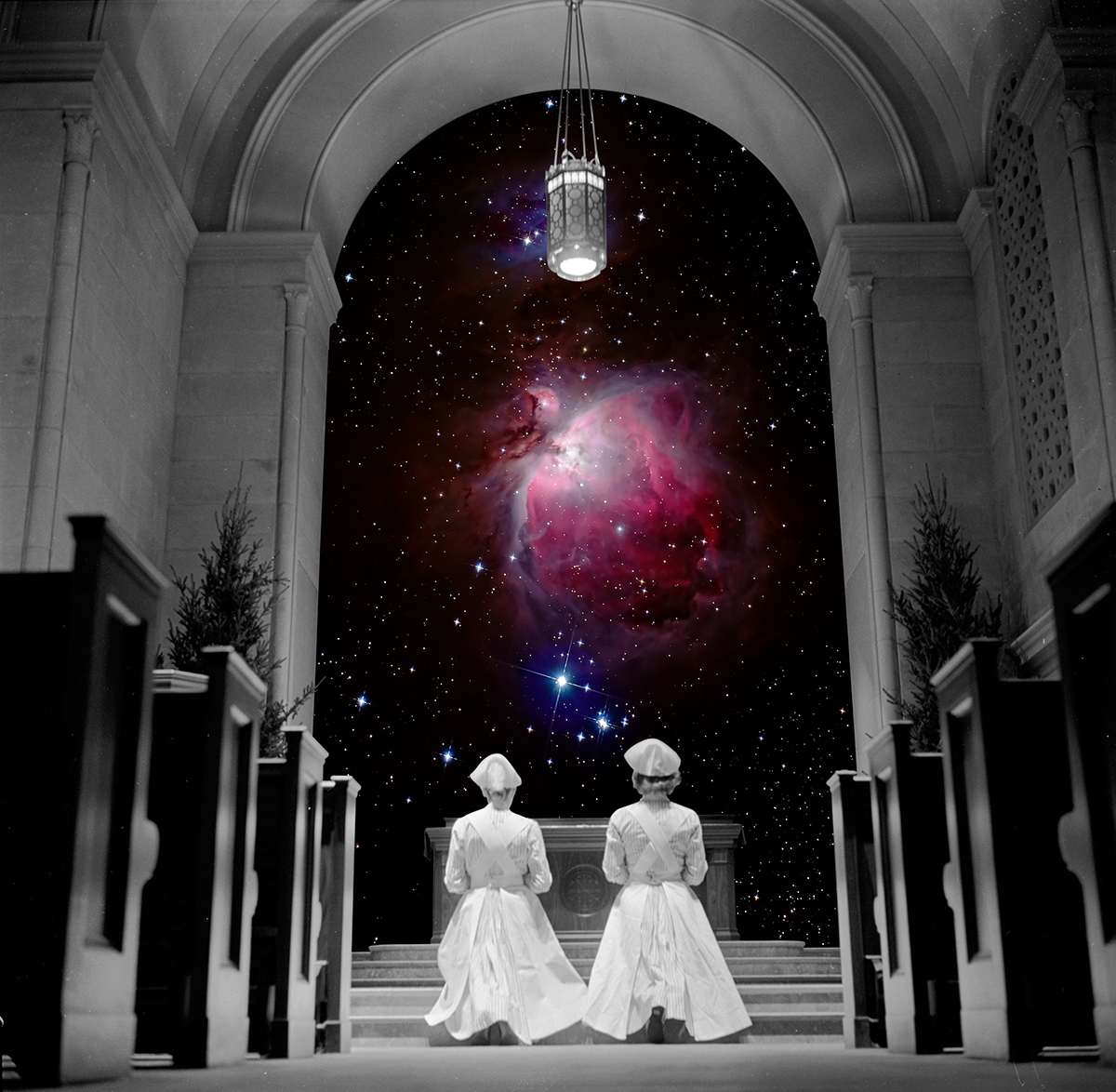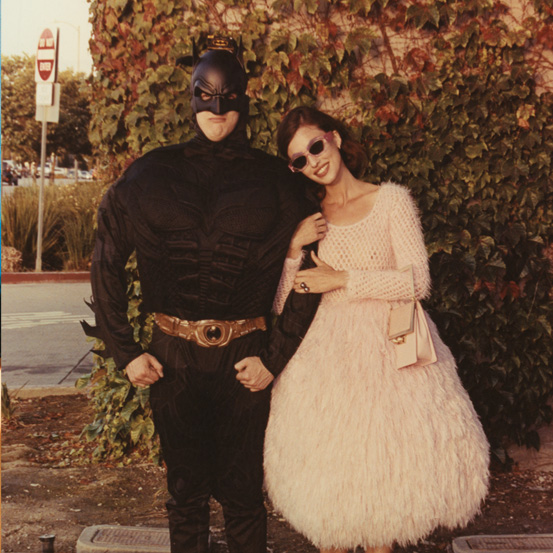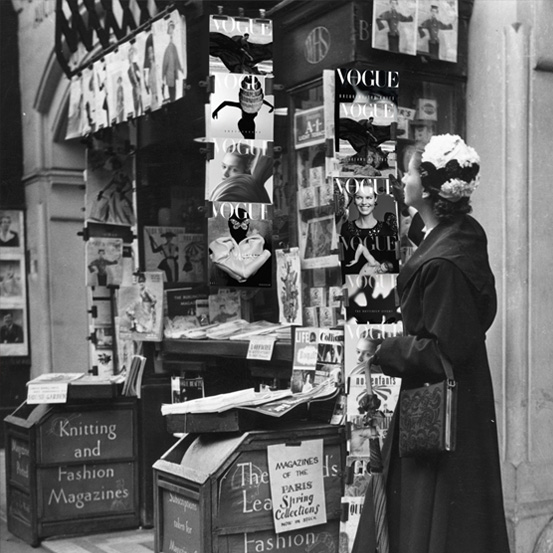Astrology is one of man's oldest spiritual beliefs. But despite its age, it has never been more popular. As religion moves away from the younger generation, is astrology the answer to the spiritual needs of the future?
Astrology is one of man's oldest spiritual beliefs. But despite its age, it has never been more popular. As religion moves away from the younger generation, is astrology the answer to the spiritual needs of the future?

Who's Who was invented in 1979. Despite its old age, it's still one of the most popular board games ever. Its success is easily understood: there is nothing quite as fun as reducing a person to their baseline characteristics. If most stopped playing the game in the epilogue of their childhood, the fascination with typing strategies remained. Consider the chokehold Buzzfeed quizzes had us under when they first appeared. It became essential to know “which Disney princess I most identify with” or even "what kind of pizza best represents my personality.” Eventually, our interest turned to more serious matters, such as the Myers-Briggs personality tests, which have never attracted such popularity. But no other phenomenon captivates this reflex as much as astrology. Through a complex system of typologies, where a person's personality is dependent not only on their sign (known among experts as the solar sign) but also on other astral positions. Moon, Jupiter, ascendant, Uranus, all these "houses" have a sign, and the complexity of these explains our personalities to the point of incessant. Astrology sets up complicated webs of metaphors, connecting everything from our personal lives to historical events through the position of the stars. This is not the horoscopes in our mothers' magazines. New astrology is both entertaining and complex.
The pseudoscience of astrology is not new. It is one of mankind's most ancient spiritual systems. Dating back to the second millennium before the Common Era, Babylon was the first civilization to structure astrology as a scientific discipline. This notion would remain intact until the 17th century when the rationality of the Enlightenment discarded it as useless. But even in the shadows, astrology survived as an expression of the occult, a divinatory technique from time immemorial. The social and cultural movements of the 1970s brought astrology back into the limelight. However, its seriousness was disregarded, interpreted as part of a New Age lifestyle, parallel to "normal" life." If the interest in non-traditional practices was revived in the last century, it was with the arrival of the new millennium that it became popular. The advent of the Internet, and the instantaneous sharing of information that it allows, ennobled the knowledge that had been hidden. In the information age, everything you could ever want to know is just seconds away. Not only are the voices of astrological experts becoming louder, but this kind of knowledge is being democratized. Anyone, with some patience, can become more or less fluent in the astral language. There are hundreds of websites and applications that, in addition to drawing an astrological chart, inform us extensively about its meaning and implications.
The influence of astrology is not only felt in the voices of social network users, the knowledge present in the stars has many more repercussions. The impact of the position of the planets has financial and political implications. The fashion industry, for example, has always had a close relationship with astrology. Eternally concerned with ephemeral and irrational tides of trends, Fashion looks to the stars for explanations. Experts like Maya AlZaben, one of the most famous astrologers in the fashion world, are busy responding to this desire. In an interview with Vogue Portugal, the astrologer immediately clarifies that "the goal of astrology is not to predict the future, the movements of the planets are mirrors of reality, they don't impact what happens on Earth, they only reflect it." Branches of the discipline, such as elective astrology, help us understand the best timing for decision-making. When extrapolated to the Fashion industry, this can become a valuable tool for deciphering future trends. The American astrologer has created a guide, being the first to explore the infinite connections between the occult and Fashion. For 2023, based on the position of the Sun, Moon, Venus, Mars, Jupiter, and Saturn, AlZaben predicts trends such as sportswear, sustainability, as well as a new wave of popularity for the color pink. It is also through the position of the stars that the writer informs us that the presence of Raf Simons in the creative direction of Prada will start to create "waves" or that Stella McCartney will have a good year.
But even in the face of AlZaben's answers (and those we find in the stars), one question remains. Why has astrology grown so much in popularity? In two words: common culture. The rise of astrology is intertwined with the way younger generations socialize. When I apologize for a mistake because Mercury is retrograde, or I attribute my laziness to being a Taurus, I speak a language understood by a select few. The Internet, and the social networks that inhabit it, are responsible for creating this dialect. Before the advent of the digital sphere, people who held beliefs outside the mainstream found themselves isolated in their views. The connection made possible through digital contact has made this notion obsolete. Anyone with a Twitter account can share their quirky opinions and find a whole community that validates them. Divinatory practices, such as astrology, tarot, or crystals, quickly adapted to cyberspace, captivating an entire generation growing up online. It was not their mere presence that aroused the interest of millions of people, but rather the ability to adapt astrological ambiguity to the problems of a new generation. Gone are the days were predictions were only about career, love, and financial issues - now friendships, the number of followers, and even what is the best alcoholic drink for the next night out are considered. Both the topics and the language of astrology have adapted to the generation in which they have found a new audience. Memes have become a means of explaining a horoscope that is as understandable as any sentence. Applications like Co-star or Pattern have also established a social component, allowing friends to view and comment on our horoscopes and astrological charts.
Astrology has become one of the most important components of the common culture of an entire generation. Common spirituality finds its epicenter in astrology and other non-traditional beliefs, a position previously held by organized religion. As religion loses its presence in the younger generations, have new spiritual beliefs come to take the place it once held in society? The youngest generations, millennials, and generation Z, are the two groups with the least affiliation with religion since statistics have been available to document this information. Both record that more than a third of their population does not identify with any religious group. However, data reveals that the absence of religious affiliation does not mean the absence of faith. Spirituality, once reserved to traditional beliefs, is widespread in other practices. From astrology to numerology, the faith of the younger generations has shifted from its usual epicenters. The explanation behind the decline of religion is similar to that of the rise of astrology. The digitalization of our social lives has brought with it the heterogeneity of opinions and beliefs. This diversity opposes one of the most important aspects of organized religion: the concept of dogma, or single truth. It’s the explanation for why cosmopolitan, or multicultural, societies tend to be less religious. Many of the values reinforced by organized religions are in direct conflict with the principles of younger generations. Diversity, inclusion, and freedom of expression, which have become part of Internet culture, are all "condemned" by more traditional institutions. Millennials and Generation Z mostly live in a world where the fluidity of expression of sexual orientation and gender identity is normal. The inability of traditional religions to adapt to these values costs them the devotion of the youth. Even Pope Francis, popular among the younger generation for his "progressive" views, finds himself in dissonance with the youth population. Although he has shown unprecedented empathy for the LGBTQIA+ community, the Pope confessed in a recent interview that "being homosexual is not a crime (...), but it is a sin."
In 1882, the German philosopher Friedrich Nietzsche declared, "God is dead." The shocking expression was the philosopher's explanation for the progressive decline in religious participation. His thesis indicated that in the face of the growing importance of science in society, religious beliefs would continue to lose their impact. From the philosopher's metaphor, we find the answer to the rising popularity of astrology. In the past, we found ourselves wedded to the idea of religion as the only access we had to our spirituality. But with the advent of modernity, the relationship between our society and religion became increasingly strained. New problems arose and, cut off from what used to be spiritual comfort, we took refuge in the arms of other faiths. Astrology, in all its ambiguity, is the pool boy of a spiritually dissatisfied society. Like any new relationship, the younger generation's connection with astrology is uncomplicated. Instead of the rigor and devotion required by religion, these new spiritual practices allow us to form our spirituality organically. There are no rules about who can be a believer. Everyone can choose what they want to engage in and how much they want to devote themselves. While these new spiritual practices differ in certain aspects from religion, they still meet the same needs. An intrinsic part of religion is its sense of community, the key to socialization. Astrology has the same attributes: by simply communicating our sign, we start a conversation based on sharing something common - astrological knowledge. Above all, astrology, like religion in the past, is a defense mechanism against a complicated and stressful world. The stars hide explanations of the inexplicable and bring meaning to the absurd. Both millennials and generation Z live with the omnipresent threat of climate change, and both have experienced economic recessions and a global pandemic. Not surprisingly, they look for answers in the least conventional places. From a sense of community to freedom of belief, astrology allows spiritual expression without religious devotion. We jump out of the arms of traditional religion into the comfort of spiritual beliefs like astrology. The analogy inspired by Nietzsche is not intended to be offensive, just a metaphor for the spiritual tendencies of the present. But in case we have offended, it is not our fault: Mercury must be in retrograde.
Translated from the original on The Good Luck Issue, published March 2023.Full stories and credits on the print issue.
Most popular


E viveram felizes (para sempre...?): o que é que acontece quando uma feminista se apaixona?
03 Mar 2026
Relacionados
.jpg)
Moda Coleções Lifestyle Pessoas
“Tudo parecia ter vida própria”: Vicky Montanari na Semana de Moda de Paris com a Dior
05 Mar 2026




